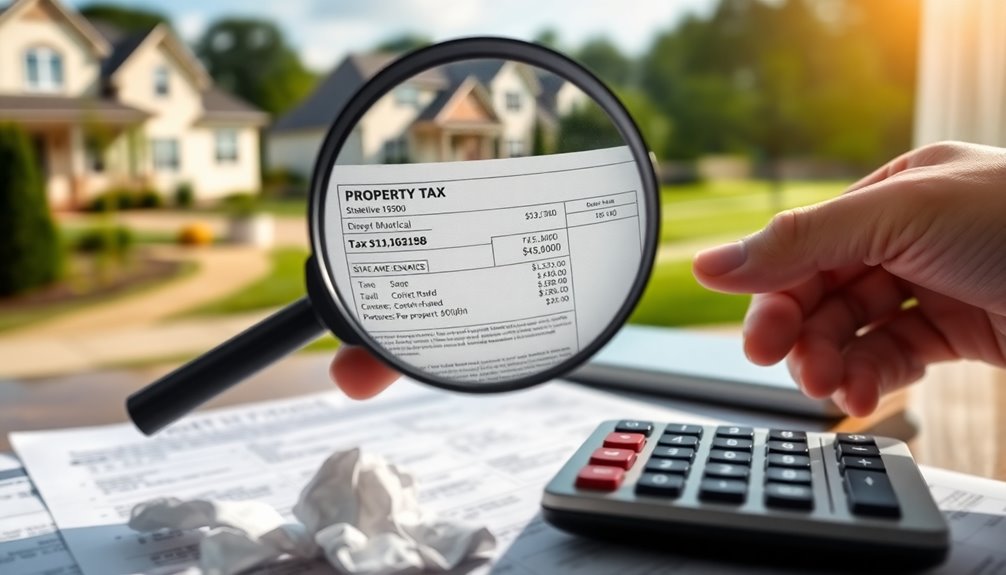If you're looking for countries that don't impose personal income taxes, several great options exist. The Bahamas, Cayman Islands, Bermuda, and UAE are popular choices, letting you keep your income intact. Monaco also offers a tax-free lifestyle for individuals, while Saint Kitts and Nevis and Antigua and Barbuda create favorable conditions for foreign investments. Each location has unique perks, attracting expats and investors alike. However, it's important to consider other taxes that might apply. Curious about the advantages and challenges of living in these tax-free locations? There's plenty more to explore!
Key Takeaways
- The Bahamas, Cayman Islands, and Bermuda have no personal income tax, attracting individuals seeking financial flexibility.
- Monaco offers a tax-free environment for personal income, appealing to high-income earners.
- The UAE has no personal income tax, making it attractive for expatriates and businesses.
- Countries like Saint Kitts and Nevis and Antigua and Barbuda provide tax-free income environments, fostering foreign investments.
- Tax-free countries may have high living costs and varying visa policies, so thorough research is essential before relocating.
Countries Without Personal Income Tax

Many people dream of living in a place where they don't have to pay personal income tax, and there are several countries that fit this criteria.
The Bahamas, for instance, offers a tax-free haven with no income, inheritance, or capital gains taxes. While it does have a VAT and property taxes, many find the trade-offs worthwhile. Tax havens often face international scrutiny for financial secrecy and compliance.
The Cayman Islands is another attractive option, boasting no income tax, payroll tax, or capital gains tax, making it a favorite for multinational companies.
Traveling further, you'll find Bermuda, which imposes no income or inheritance taxes but does have VAT and property taxes.
Antigua and Barbuda also provide a tax-free income environment, though they charge an annual fee for International Business Companies.
Saint Kitts and Nevis rounds out the Caribbean options with its no-income-tax policy, making it favorable for foreign investments.
In the Middle East, the United Arab Emirates stands out with its thriving expat community and zero personal income tax.
Similarly, Bahrain and Qatar follow suit, offering tax-free living while applying corporate taxes to foreign companies.
Each of these countries presents unique benefits that attract those seeking financial freedom.
Tax-Free Territories and Regions

Across the globe, several tax-free territories and regions attract individuals and businesses seeking financial relief. In the Caribbean, places like the Bahamas and the Cayman Islands offer no income tax, payroll tax, or capital gains tax, making them ideal for financial flexibility. Bermuda also has no income tax but does impose a payroll tax. Antigua and Barbuda, with no income, wealth, or capital gains taxes, provides a 50-year tax exemption for International Business Companies (IBCs).
In the Middle East, the United Arab Emirates (UAE) stands out with no personal income tax and minimal business regulations. Bahrain and Qatar also boast no income tax, thanks to their oil wealth. Kuwait and Oman follow suit, although Oman is considering introducing a personal income tax.
Europe has its share of tax havens too. Monaco is famous for having no income tax, attracting high-income individuals.
Andorra and Malta offer favorable tax conditions, although not completely tax-free.
Other notable territories include Brunei, Vanuatu, and the Turks and Caicos Islands, all of which provide tax advantages. Each of these locations presents distinct opportunities for financial advantages.
Economic Factors Influencing Tax Policies

Economic factors play a crucial role in shaping tax policies, directly influencing how governments design their tax systems. When economic growth surges, you see higher corporate profits and personal incomes, which boosts tax revenues. Expanded businesses and improved employment rates broaden the tax base, leading to increased corporate and individual income taxes.
In turn, higher employment means more payroll tax contributions, enhancing overall tax revenues. Recent economic growth has shown that as GDP increases, tax revenues also tend to rise, further emphasizing the link between economic performance and tax strategy.
Inflation and interest rates also significantly affect tax policies. For instance, a drop in inflation can lead to adjustments in tax strategy. Lower interest rates, anticipated by the Federal Open Market Committee, can influence both tax revenues and policies, impacting how businesses and individuals plan their investments.
A stable inflation environment helps maintain predictability in tax obligations.
In developing countries, economic challenges complicate tax collection processes. Weak institutions and informal economies make reliable tax data hard to come by. Moreover, tax systems often lack progressivity, meaning wealthier individuals don't pay their fair share.
Citizenship by Investment Options

For those seeking both financial benefits and global mobility, citizenship by investment (CBI) options present an attractive pathway. Countries like Antigua and Barbuda and St. Kitts and Nevis offer various investment avenues that allow you to gain citizenship while enjoying tax advantages.
In Antigua and Barbuda, you can invest a minimum of $100,000 in the National Development Fund or opt for real estate investments starting at $200,000. Similarly, in St. Kitts and Nevis, a minimum investment of $150,000 in the Sustainable Growth Fund can grant you citizenship.
Vanuatu presents another option with a non-refundable contribution of $130,000, or you could choose real estate investments. Dominica also allows you to gain citizenship through a $200,000 donation to the Economic Diversification Fund or by investing in real estate.
These CBI programs not only provide you with a second passport but also grant visa-free travel to numerous countries. Additionally, many of these countries have Golden Visa Programs that facilitate the process of obtaining citizenship through investment.
With options tailored to different investment capacities, you can select the one that suits you best while enjoying the benefits of no income tax.
Benefits of Tax-Free Living

Living in a tax-free country can significantly enhance your financial well-being and overall lifestyle. Without personal income tax, you'll enjoy a higher disposable income, allowing for better budgeting and spending on what matters most to you. The absence of capital gains, dividend, and interest taxes means your investments can grow without the tax bite, maximizing your wealth. Many tax-free countries also provide a low cost of living, enabling you to stretch your dollars further while enjoying a high quality of life. Countries like the UAE and the Bahamas offer attractive living conditions, safety, and diverse communities, making them ideal for both work and leisure. Moreover, with no corporate income tax, entrepreneurs can thrive, and the business-friendly environment invites foreign investments, further stimulating the economy. You can explore various investment opportunities without the constant worry of tax implications. Additionally, states without income tax often compensate with higher taxes elsewhere, so it's essential to evaluate the overall financial picture when considering relocation.
Considerations for Expatriates

Choosing to relocate to a tax-free country can be an enticing opportunity, but it's important to consider various factors as an expatriate.
First, check the eligibility and residency requirements. Countries like The Bahamas and St. Kitts and Nevis offer temporary permits and investment options, but you'll need significant capital. For example, in the Bahamas, a minimum investment of $500,000 is required for residency.
Next, think about the economic environment. Many tax-free nations, such as the UAE and Cayman Islands, rely heavily on tourism or oil revenues, which can affect job stability and business opportunities.
You also need to be aware of any tax implications. While you won't pay personal income tax in places like Monaco, other taxes may still apply, such as corporate tax or VAT. If you're a US citizen, remember that you're taxed on worldwide income, even in tax-free regions.
Finally, consider legal and administrative aspects like visa policies and compliance requirements. Countries like the UAE offer practical long-term visa options, while others may have more complex processes.
Thorough research on these factors will help ensure a smooth transition and a successful expatriate experience.
Frequently Asked Questions
Are There Any Hidden Taxes in Tax-Free Countries?
Yes, there are often hidden taxes in tax-free countries. You might encounter indirect taxes like customs duties on imports or corporate taxes for businesses.
Additionally, fees and charges can add up, such as residency permit costs or local property taxes.
Even tourism-dependent locations may impose taxes on visitors.
How Do Tax-Free Countries Fund Public Services?
Tax-free countries fund public services through alternative revenue sources.
They often rely on income from natural resources, like oil and gas, or generate funds through tourism and real estate.
Additionally, they implement fees and licenses for businesses operating within their borders.
Even without traditional taxes, these countries maintain infrastructure and public services by leveraging these diverse revenue streams, ensuring their citizens still receive essential services without the burden of personal income tax.
Can I Work Remotely in a Tax-Free Country?
Yes, you can work remotely in a tax-free country! Many nations offer digital nomad visas that allow you to live and work without paying income tax, as long as you're not employed by a local company.
Countries like Antigua and Barbuda, Barbados, and Bermuda provide exciting opportunities for remote workers.
Just make sure you meet their income requirements and have the necessary proof of financial stability. Enjoy the freedom of working from paradise!
What Are the Drawbacks of Living in a Tax-Free Country?
Living in a tax-free country can seem appealing, but you might face several drawbacks.
The high cost of living can offset any tax savings, making housing and daily expenses burdensome. Job opportunities may be limited, and navigating visa requirements can be complex.
Additionally, legal and financial regulations can create confusion.
Lastly, you may find that the quality of life, including healthcare and education, doesn't meet your expectations, impacting your overall experience.
How Do Tax-Free Countries Attract Foreign Businesses?
Tax-free countries attract foreign businesses by offering favorable tax regimes, which significantly reduce operational costs.
You'll find no personal or corporate taxes in many of these places, making them financially appealing. The absence of VAT and low consumption taxes further enhance profitability.
Additionally, straightforward residency requirements and quick processing times for visas encourage investment.
With stable governments and well-developed infrastructure, these countries create a welcoming environment for entrepreneurs and skilled workers alike.
Conclusion
In conclusion, exploring countries without personal income tax can open up unique financial opportunities for you. Whether you're considering a tax-free territory or a citizenship by investment option, the benefits of tax-free living can be appealing. Just keep in mind the economic factors and potential challenges you might face as an expatriate. Ultimately, doing your research will help you make an informed decision that aligns with your lifestyle and financial goals.









